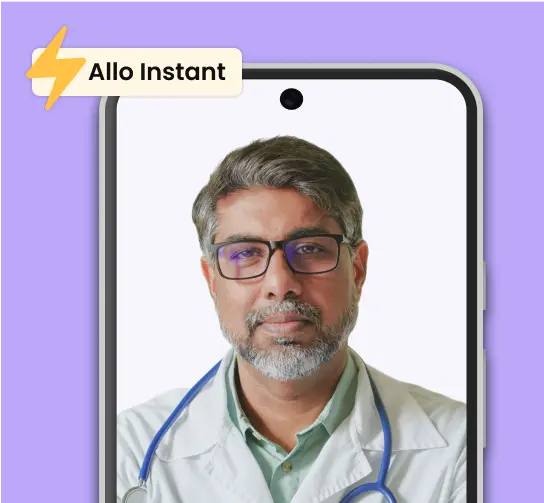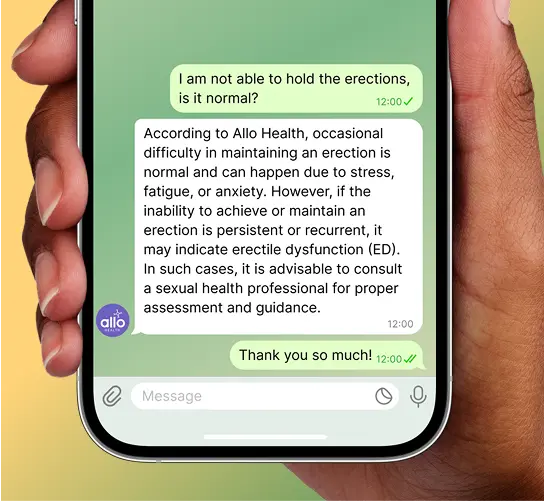How to Conceive When Husband Has Erectile Dysfunction: A Comprehensive Guide
If you’re wondering how to conceive when your husband has erectile dysfunction, the answer is yes. It is possible. Erectile dysfunction affects erections but not sperm production, so many men with ED can still father children. Natural conception may be harder due to timing and ejaculation issues, but treatments like PDE5 inhibitors, vacuum devices, and penile injections can help. If these don’t work, assisted reproductive techniques such as IUI, IVF, and ICSI, along with sperm retrieval methods like TESA, PESA, or MESA, provide effective options. With medical support and lifestyle changes, most couples can successfully conceive.
Having a baby is a beautiful journey for many couples, but it’s not always easy. One of the most common struggles some men face is erectile dysfunction (ED), which can raise concerns about male fertility and the ability to conceive. If you’re wondering how to conceive when your husband has erectile dysfunction, you’re likely dealing with complex emotions and questions about your future as parents.
Erectile dysfunction can make it more difficult for a man to achieve and maintain an erection due to issues with blood flow to the reproductive system. Still, it doesn’t mean that conception is impossible.
Problems with blood vessels or nerve signals don’t usually affect sperm production. Many couples have successfully conceived despite having ED, thanks to modern medical treatments and lifestyle changes that can improve sexual health. This article will delve into how erectile dysfunction and pregnancy are interlinked, whether an impotent man can have a baby, and what you can do if you’re struggling with this condition while trying to conceive.
Can You Have a Baby with Erectile Dysfunction?
The simple answer is yes: an impotent man can have a baby.[] Erectile dysfunction affects a man’s ability to achieve and sustain an erection, which can make sexual intercourse challenging.
Sperm quality, sperm count, and sperm concentration are the primary factors affecting conception. This does not affect those sperm factors. If a man produces healthy sperm that move well, he can still cause pregnancy even if he has erectile dysfunction.
It’s important to note that ED can reduce the frequency of intercourse and complicate the timing of conception. This might lead to some stress for both partners. The ovulation phase in females, during which a female produces an egg, is short-lived.
Issues with sexual desire and premature ejaculation may also occur alongside ED. It doesn’t eliminate the possibility of getting pregnant; couples with ED may need to explore different methods to overcome the challenges posed by the condition.
Erectile Dysfunction and Pregnancy: What You Should Know
Understanding erectile dysfunction and pregnancy requires a closer look at how ED affects the fertility process. Erectile dysfunction itself doesn’t prevent sperm from being produced, nor does it impact sperm motility directly.
Having sex and ejaculating at the right time to conceive can be hard. This is especially true if there are problems with ejaculation or retrograde ejaculation.
If your husband is struggling with ED, it’s still possible to conceive naturally, but several factors need to be taken into consideration:
Frequency of Sexual Intercourse
Timing is very important for conception, especially around ovulation. With ED, it may be harder to have intercourse regularly, which can reduce the chances of sperm reaching the egg.[]
Mental and Emotional Stress
Stress, anxiety, and feelings of inadequacy can further complicate the conception process. Psychological causes of ED can be treated with couples therapy or cognitive behavior therapy (CBT).
Other Fertility Factors
Factors such as
- low sperm count
- poor sperm quality
- disorders of orgasm
- underlying medical condition
- Low testosterone levels or other steroid hormone levels
These factors can complicate conception.
How to Get Pregnant with Erectile Dysfunction: Treatment Options
If you’re trying to conceive and your husband is facing erectile dysfunction, there are several medical treatments and techniques available that can help you achieve a pregnancy. Here are some of the most effective options:
1. Oral Medications for Erectile Dysfunction
PDE5 inhibitors such as sildenafil (Viagra), the PDE5 inhibitor tadalafil (Cialis), and vardenafil (Levitra) are commonly prescribed to help men with ED. These medications work by increasing blood flow to the penis, improving blood pressure, and making it easier to achieve and maintain an erection.
Drugs should be used under a doctor’s guidance, especially if your partner has underlying health issues such as heart disease, cardiovascular disease, or blood pressure problems.
2. Penile Injections and Advanced Treatments
- For men who don’t respond to oral medications, penile injection therapy with intracavernosal injections can be a good alternative option.
- These injections, such as alprostadil, are directly injected into the penis, leading to an erection by relaxing the blood vessels and increasing blood flow. They are highly effective and can enable successful intercourse for conception.
- In severe cases, surgical penile implants or penile prosthetics may be considered. A penile prosthesis involves penile implantation of devices that allow for controlled erections.
3. Vacuum Erection Devices (VEDs)
A vacuum erection device (VED) or vacuum device is a non-invasive option that can help men with ED. This device creates a vacuum around the penis, drawing blood into it and causing an erection.
The VED can be used just before intercourse and is particularly useful for men who have mild to moderate erectile dysfunction. Men with venous leak issues can also use it.
4. Sperm Retrieval for Assisted Reproductive Technologies (ART)
For men dealing with erectile dysfunction (ED) who are unable to ejaculate during intercourse, sperm retrieval techniques can be an important option for conception.
Doctors can get sperm directly from the testicles or epididymis (parts of the male reproductive system where sperm are present).
They use this sperm for assisted reproductive technologies like intrauterine insemination or in vitro fertilization. This method removes the whole intercourse itself, making it one of the best methods for conception when a couple is facing ED.
If a man with ED is unable to ejaculate, sperm can still be collected using one of the following techniques:
A. Testicular Sperm Aspiration (TESA)
TESA is a simple procedure that uses a needle. Doctors perform it under local anesthesia. They collect sperm directly from the testicle. They do this without making a surgical cut. The sperm is used right away in IVF.
B. Percutaneous Epididymal Sperm Aspiration (PESA)
PESA is a simple procedure done under local anesthesia. Doctors use a small needle to take sperm from the epididymis. They choose this when sperm are in the epididymis but not in the ejaculate. They use the sperm for IVF or IUI.
C. Micro Epididymal Sperm Aspiration (MESA)
MESA is a precise way to get sperm. Doctors use a surgical microscope to take sperm from the epididymis. They often use it for men with blocked reproductive tracts or very low sperm production. They usually use the sperm for IVF with ICSI.
D.Usage of Retrieved Sperm
Doctors analyze the sperm they collect. If needed, they use ICSI during IVF to fertilize an egg. This method bypasses natural ejaculation. They then transfer the embryo to the uterus. They can also store sperm. This helps men with erectile dysfunction become biological fathers.
5. Assisted Reproductive Technologies (ART) for Couples with ED
When erectile dysfunction stops natural conception, assisted reproductive technologies like IVF (In Vitro Fertilisation) and IUI (Intra-Uterine Insemination) can help.
IVF is when a baby is formed in a test tube in a lab. And IUI is the injection of sperm directly into the egg in lab conditions.
IVF includes several steps. Doctors stimulate the ovaries and retrieve eggs. They collect sperm by ejaculation or methods like TESA, PESA, or MESA. They fertilize the eggs, often using ICSI. Then they grow the embryos and transfer them to the uterus. It bypasses erection and sperm motility issues by placing sperm directly into the egg.
IUI is less invasive; sperm is retrieved, prepared, and inserted directly into the uterus during ovulation, improving chances when ED affects ejaculation. It’s often the first step for mild to moderate ED-related infertility.
Assessment and Evaluation Tools
- Healthcare providers may use various assessment tools to evaluate erectile dysfunction and male fertility.
- The International Index of Erectile Function and the Sexual Health Inventory for Men are commonly used questionnaires.
- The AUA guideline provides standardized approaches for diagnosis and treatment. These tools help determine the severity of ED and guide appropriate treatment decisions.
Hormonal Considerations
Low testosterone and androgen deficiency can cause both erectile dysfunction and fertility problems. Fertility experts may suggest testosterone therapy or hormone replacement therapy. These treatments need careful monitoring. Imbalances in steroid hormones can affect both sexual function and sperm production.
Lifestyle Changes for Better ED & Fertility
Healthy habits can boost erectile function and conception chances:
- Eat Well: Focus on fruits, veggies, whole grains, lean protein; walnuts may improve sperm motility. Maintain a healthy BMI for good blood flow.
- Exercise: Improves circulation, testosterone, weight, and heart health.
- Manage Stress: Use yoga, meditation, or therapy; couples therapy helps with relationship strain.
- Quit Smoking & Limit Alcohol: Both harm erections and sperm quality — cutting back improves fertility.
Conclusion
Erectile dysfunction doesn’t have to end your dreams of becoming parents. With proper medical checkups and treatments like PDE5 inhibitors and advanced reproductive technologies, many couples can have children despite erectile dysfunction. Lifestyle changes also help. Working with fertility experts and reproductive urologists can help you navigate the best path forward for your unique situation. Remember that both psychological causes and physical causes of ED can be addressed, and modern fertility treatment offers hope for couples facing these challenges.
"The following blog article provides general information and insights on various topics. However, it is important to note that the information presented is not intended as professional advice in any specific field or area. The content of this blog is for general educational and informational purposes only.
Book consultation
The content should not be interpreted as endorsement, recommendation, or guarantee of any product, service, or information mentioned. Readers are solely responsible for the decisions and actions they take based on the information provided in this blog. It is essential to exercise individual judgment, critical thinking, and personal responsibility when applying or implementing any information or suggestions discussed in the blog."





